Day: November 15, 2023

The United States is in a heightened threat level since Hamas’s October 7 attack on Israel, which has “sharpened the focus” of terrorist threats to the country, Biden officials told a House Homeland Security committee hearing Wednesday.
“I feel very strongly that we are in a heightened threat environment,” Christopher Wray, director of the Federal Bureau of Investigation (FBI), told the committee.
Chairman Rep. Mark E. Green (R-Tenn.) underlined that point, but pinned the blame on the Biden administration.
“This is one of the most dangerous times in the history of the United States,” he said. “Without question, the homeland is less safe under this president.”
Wray and the other officials said the Israel-Hamas war threatens to inspire domestic and international terrorism, something federal agencies have been saying since the fighting began more than a month ago.
“Although the terrorism threat in the United States has remained heightened throughout 2023, Hamas’s attack on Israel, along with other recent events, have sharpened the focus of potential attacks on targeted individuals and institutions perceived as symbolic of or tied to the conflict,” said Homeland Security Secretary Alejandro Mayorkas.
Wray said the FBI continues to monitor threats across the country, many of which are directed towards Jewish and Muslim individuals and institutions.
“Terrorist organizations worldwide, as well as individuals attracted to violence, have praised Hamas’s horrific attack on Israeli civilians,” Wray said. “We have seen violent extremists across ideologies seeking to target Jewish and Muslim people and institutions through physical assaults, bomb threats, and online calls for mass casualty attacks.”
“Our top concern stems from lone offenders inspired by— or reacting to—the ongoing Israel-Hamas conflict, as they pose the most likely threat to Americans, especially Jewish, Muslim, and Arab-American communities in the United States,” Wray added.
National Counterterrorism Director Christine Abizaid said several federal departments are working together to keep Americans safe, with the National Counterterrorism Center providing intelligence across federal and local law enforcement agencies.
“We continue to closely monitor, evaluate, and take appropriate actions with respect to potential threats to the United States in the wake of the 7 October Hamas attacks against Israel and the resulting regional tensions,” Abizaid said.
“We are sharing relevant information with our federal state, local, and international law enforcement, intelligence, defense, and homeland security partners to ensure they are prepared for any threats.”
Wray said the “biggest chunk” of the rise in threats were those targeting the Jewish community.
He added the FBI is “very intensely doubling down” on its monitoring of threats to the Jewish community, and to ensure the safety of all Americans.
Tags Christopher Wray FBI homeland security threats Joe Biden terror threats
Copyright 2023 Nexstar Media Inc. All rights reserved. This material may not be published, broadcast, rewritten, or redistributed.
Analysis of the question, “Who Killed Yevgeny Prigozhin?
They got him in the end.” This was a common reaction to the news about the private jet crash that, at least according to Russian officials, killed the warlord Yevgeny Prigozhin, head of the infamous Wagner mercenary army. There are many theories about what actually happened, including the lingering question, “Who Killed Yevgeny Prigozhin?” The fundamental point remains that President Vladimir Putin no longer had any need for Prigozhin, a man he publicly described as a backstabbing traitor during Wagner’s short-lived mutiny just two months ago.
Many were surprised that Prigozhin’s rebellion ended with a presidential meeting, a rare luxury today. According to Kommersant, the Wagner commanders at the conference nodded when asked if they were ready to serve under a new leader, Alexei Troshev. Still, Prigozhin, who was seated in front, remarked, “No, the guys won’t agree to that.”
Putin appears to have tried to negotiate with Wagner without directly confronting Prigozhin. Putin required the Wagner chief to oversee Troshev’s smooth transfer, Wagner’s heavy equipment submission to the Defense Ministry, and the mercenaries’ safe relocation to Belarus.
Yevgeny Prigozhin was allowed to travel, visit Russia, and earn assets following the revolt. It also provided officials with time to assess Prigozhin’s resources, people, and international connections.
Inaction by the Kremlin after Prigozhin’s mutiny may have been intended to give Wagner and Prigozhin the impression that Wagner’s conflict with the authorities had been resolved. One would have thought Prigozhin’s sentence meant he had disappeared from Russian public life while continuing his work in Africa.
After Wagner moved to Belarus and the Kremlin assessed Wagner’s commanders’ compromiseability, Prigozhin was no longer needed.
Wagner’s African and Syrian infrastructure may be handed up to the state or a loyalist. The Russian security services have long co-opted Prigozhin’s media assets, including the St. Petersburg “troll factory”.
Even though Yevgeny Prigozhin worked closely with the Kremlin and Russia’s military intelligence, his goal was to use private assets and state power to replace weak government organizations. Putin let this continue for a long period, evidently not seeing Prigozhin as a threat to the state or president.
Putin has always considered this model harmful. The president trusts his supporters (Prigozhin was never a personal friend) with specific responsibilities, but he has always been protective of the state and scared of its weakness.
Putin has intensified military hierarchy-building since January. Prigozhin captured Bakhmut, but Russia’s army leaders were increasingly important. Defense Minister Sergei Shoigu and Chief of the General Staff Valery Gerasimov were prominently shown as close to the president. Wagner warriors may obtain Defense Ministry contracts and join the formal hierarchy.
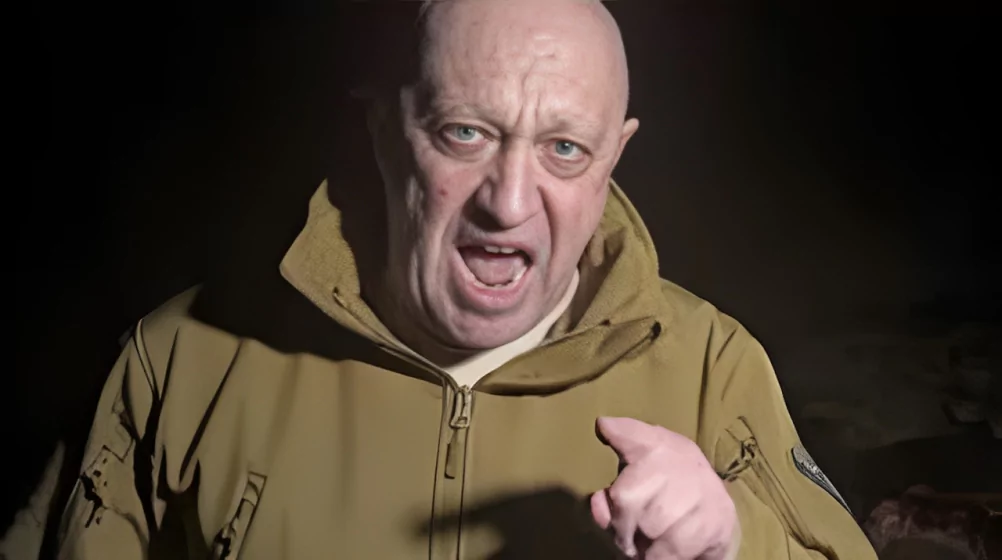
Prigozhin was told to address difficulties through the military command system, not the president or Kremlin. As it turned out, Putin underestimated Prigozhin and his temerity and autonomy following Russia’s full-scale invasion of Ukraine in 2022.
After the Wagner rebellion, the Kremlin accelerated its consolidation of the armed forces and “neutralized” all autonomous military chiefs. Putin was acting state-centrically, not eliminating Prigozhin sympathizers. He wanted to abolish the polycentricity of the military and depose all those who wanted independence.
General Sergei Surovikin was fired as chief of Russia’s aerospace forces for going too far, but he may not be charged. Prigozhin’s insurrection also empowered the FSB to target ultra-nationalists. The arrest of former Ukrainian rebel commander Igor Girkin (Strelkov) ended the Kremlin’s fear of confrontation with the army’s hardline critics.
Prigozhin’s suspected murder shows the Kremlin intended to display how it handles traitors. Whatever happened, the Russian elite will blame Wagner’s violent insurrection for the air accident. Conservatives will admire it as justice, while others will be afraid.
Many ultra-patriots were confused by the first mercy offered to Prigozhin and saw it as an indication of the state and Putin’s weakness. Of course, many wanted Prigozhin to try, especially for the Russian soldiers murdered in his insurrection.
Putin thought this more traditional method of justice was problematic since Prigozhin had many admirers, including ordinary Russians. Putin has never trusted public democracy either.
Even if Prigozhin’s death was an accident, the Kremlin will try to make it seem like vengeance. Putin considers this his contribution to Russian statehood.
Who is Yevgeny Prigozhin?
Yevgeny Prigozhin, born on June 1, 1961, in Leningrad, Soviet Union (now Saint Petersburg, Russia), was a Russian mercenary leader and oligarch. Initially a close confidant of Russian President Vladimir Putin, he headed the Wagner Group, a private military company, until he initiated a rebellion in June 2023. Prigozhin accumulated wealth through personal connections with Putin, securing lucrative catering and construction contracts with the Russian government. Simultaneously, he built the Wagner mercenary force, utilizing it to clandestinely promote Russian interests in conflicts such as Ukraine and across Africa.
Notably, Prigozhin played a role in meddling with the 2016 US presidential election through the Internet Research Agency, a troll factory engaging in spreading misinformation and conducting information warfare against the United States. This support was directed toward Donald J. Trump’s presidential campaign. Following a mutiny against the Russian general staff, Prigozhin reportedly met his demise in a plane crash north of Moscow on August 23, 2023.
Early Life and Education
Yevgeny Prigozhin, born on June 1, 1961, in Leningrad, Soviet Union (now Saint Petersburg, Russia), was the only child of Violetta Kirovna Prigozhina, a hospital nurse, and Viktor Yevgenyevich Prigozhin, a mining engineer who passed away when Yevgeny was nine years old. His grandfather, Yevgeny Ilyich Prigozhin, played a significant role as a captain in the Red Army during World War II. Prigozhin’s father and stepfather are believed to be of Jewish descent, and his great-uncle was Soviet scientist Yefim Ilyich Prigozhin. Following the passing of his father, his mother and grandmother raised him.
In his twenties, Prigozhin spent nine years in a Soviet prison for robbery and fraud. Upon his release and the fall of the Soviet Union, he embarked on an entrepreneurial path. Starting with hot dog carts in his hometown, he gradually moved on to larger projects. Notably, he established a luxurious restaurant in St. Petersburg, which became a gathering place for Russian elites, including then-deputy mayor Vladimir Putin.
Criminal history and imprisonment
What criminal activities was Prigozhin involved in?
According to the search results, Yevgeny Prigozhin engaged in a number of criminal activities throughout his life. Here is a summary of these incidents:
- In 1979, Prigozhin was caught stealing, resulting in a suspended sentence of two years and six months. During this period, he served his sentence working at a chemical plant in Veliky Novgorod.
- Prigozhin spent nine years in detention for crimes such as robbery and fraud, ultimately being released in 1990.
- During his time in prison, Prigozhin reportedly violated the terms of his solitary confinement regularly.
- Exploiting his prison past, Prigozhin persuaded inmates to join the Wagner Group.
- Yevgeny Prigozhin‘s earlier conviction included charges of “involving minors in prostitution,” although this stemmed from a phrase in Article 210 of Soviet Russia’s Criminal Code. Other court documents suggest his conviction related to “drunkenness” and “attempted burglary.”
- As the head of the Wagner Group, a private military company, Prigozhin faced accusations of human rights abuses, war crimes, and mercenary activities in Ukraine and Africa.
- In June 2023, Yevgeny Prigozhin engaged in a mutiny against the Russian general staff, considered a criminal activity.
- The death of Prigozhin in a plane crash on August 23, 2023, has sparked rumors about possible motives, such as the possibility that he was a target of enemies or that Putin himself ordered the incident.
When and why was he imprisoned?
Yevgeny Prigozhin faced multiple prisons due to various criminal activities.
- In 1979, Yevgeny Prigozhin was apprehended for theft and received a suspended sentence of two years and six months in prison. During this time, he served his sentence working at a chemical plant in Veliky Novgorod.
- Yevgeny Prigozhin spent nine years in detention for crimes such as robbery and fraud, ultimately being released in 1990.
- During his time in prison, Yevgeny Prigozhin reportedly regularly violated the terms of his solitary confinement until his eventual release.
- Notably, Prigozhin later capitalized on his prison background to persuade inmates to join the Wagner Group.
- In June 2023, Yevgeny Prigozhin initiated a mutiny against the Russian general staff, an act that was deemed criminal activity.
How did his time in prison shape his future?
Yevgeny Prigozhin served nine years in detention for various crimes, including robbery and fraud. During his imprisonment, he reportedly violated the terms of his solitary confinement regularly. Later on, Prigozhin used his prison background to recruit individuals for the Wagner Group.
While specific details about how prison shaped Prigozhin’s future are not available in the search results, there is a general understanding of how incarceration can impact a person’s personality and beliefs. According to a BBC Future article, the highly structured yet socially threatening environment of prison often leads to significant personality changes. The lack of cognitive challenges and autonomy in an impoverished prison setting can hinder rehabilitation and affect a person’s life after release.
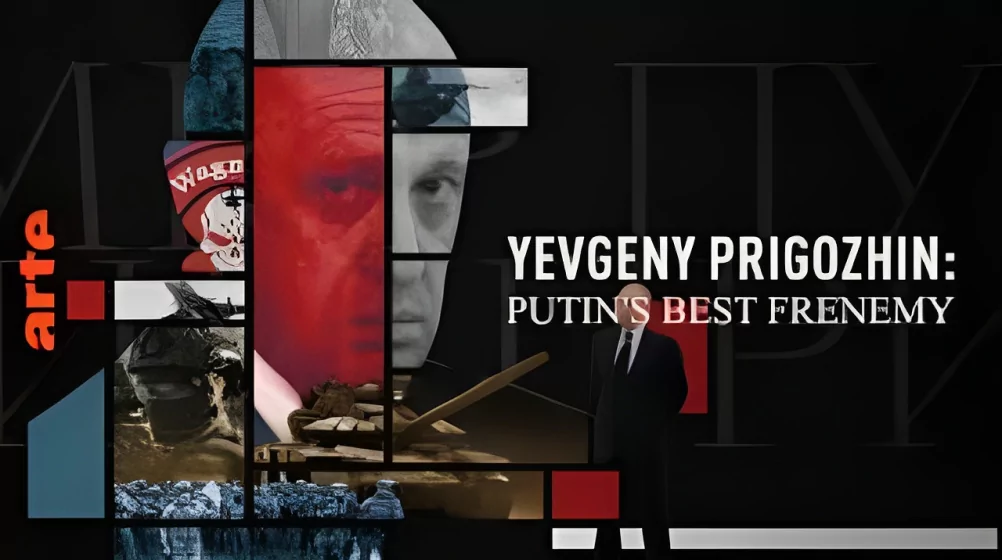
However, the story of Nelson Mandela illustrates that prison time can also serve as a transformative period, allowing individuals to reflect, grow, and positively change. Therefore, it is conceivable that Prigozhin’s time in prison may have influenced his personality and beliefs in some way.
Early Career and Rise to Prominence
After his release from prison in 1990, Yevgeny Prigozhin embarked on a hot dog-selling venture with his mother and stepfather at Leningrad’s Apraksin Dvor open-air market. Subsequently, as outlined in a New York Times interview, he witnessed a rapid accumulation of rubles, surpassing his mother’s counting speed.
Between 1991 and 1997, Prigozhin delved into the grocery store business, becoming a 15% stakeholder and manager of Contrast, the inaugural grocery store chain in Saint Petersburg founded by his former classmate Boris Spektor. Simultaneously, he ventured into the gambling industry, assuming the role of CEO at Spectrum CJSC (Russian: ЗАО «Спектр»), which initiated the first casinos in Saint Petersburg. This period marked the collaborative establishment of various businesses across industries, possibly coinciding with Prigozhin’s initial encounter with Vladimir Putin, who had chaired the supervisory board for casinos and gambling since 1991.
In 1995, Yevgeny Prigozhin entered the restaurant business, opening his first establishment, the Old Customs House (Russian: Старая Таможня), in Saint Petersburg, followed by the renowned New Island, a floating restaurant, in 1997. The latter underwent a $400,000 transformation of a rusting boat on the Vyatka River, drawing inspiration from Parisian Seine-side dining. The shift towards upscale dining marked Prigozhin’s departure from earlier establishments featuring a striptease show. Notably, reports surfaced about Prigozhin using physical violence as a disciplinary measure for poor employee performance or misconduct.
In 2001, Prigozhin personally served food to Vladimir Putin and French President Jacques Chirac at New Island, hosting US President George W. Bush in 2002 and welcoming Putin for his birthday celebration in 2003.
Throughout the 2000s, Prigozhin’s proximity to Vladimir Putin strengthened, prompting his departure from business partners in 2003 to establish independent restaurants. Concord Catering, one of Prigozhin’s companies, secured numerous government contracts, including lucrative deals for supplying meals to school children, government workers, and the Russian military. In 2012, a contract worth US$1.2 billion for military meal supply allegedly contributed to funding the Internet Research Agency.
In 2012, Yevgeny Prigozhin‘s family relocated to a Saint Petersburg compound, showcasing a basketball court and a helicopter pad. His possessions included a private jet and a 115-foot yacht, along with ties to several aircraft, including Cessna 182s, Embraer Legacy 600, British Aerospace 125, and Hawker 800XP jets. The Anti-Corruption Foundation accused Prigozhin of corrupt practices, estimating his illegal wealth at over one billion rubles in 2017.
Alexei Navalny claimed that Prigozhin, who was associated with the business Moskovsky Shkolnik (Moscow Schoolboy), supplied subpar food to Moscow schools, causing a dysentery outbreak in 2019. In 2022, he earned the title of Corrupt Person of the Year from the Organized Crime and Corruption Reporting Project.
Wagner Group Formation
The Wagner Group, established in 2014, is a Russian state-funded private military company (PMC). Initially, it provided support to pro-Russian paramilitaries during the Donbas War in Ukraine and later played a significant role in Russia’s 2022 invasion of Ukraine. Additionally, the group extended its influence to support regimes aligned with Putin’s Russia in the Middle East and Africa.
Despite repeated denials of any association with the Wagner Group, Yevgeny Prigozhin, during the 2022 Russian invasion, personally traveled to Ukraine to oversee the group’s operations. He was photographed at the frontline wearing military fatigues alongside Russian Duma member Vitaly Milonov. In September 2022, Prigozhin admitted to founding Wagner in 2014 with the goal of “protecting the Russians” during the “genocide of the Russian population of Donbas.”
He claimed an active role from the beginning, stating that he personally located specialists and handled tasks like cleaning old weapons and sorting bulletproof vests. Prigozhin also acknowledged the group’s involvement in other countries aligned with Russian overseas interests, emphasizing the role of Wagner mercenaries in defending various populations.
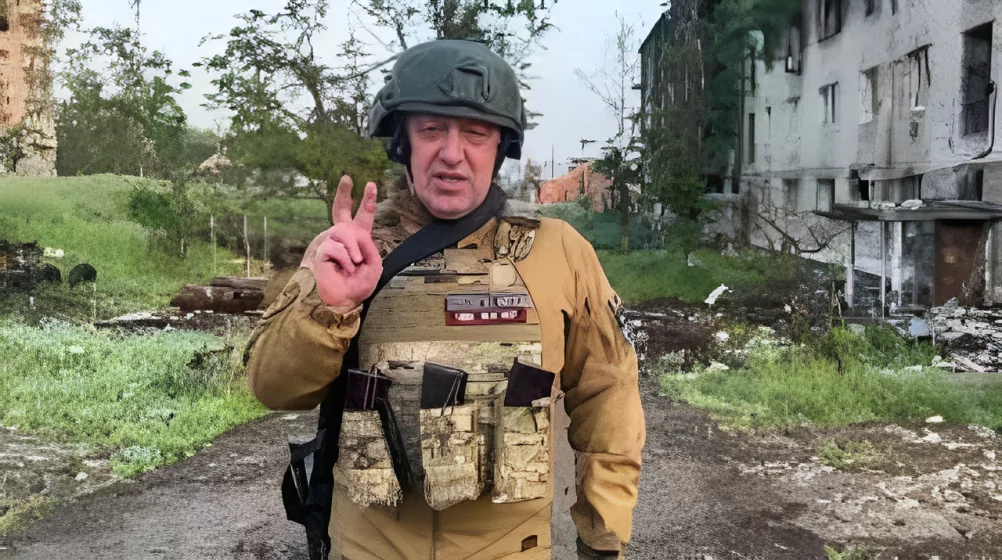
The goal of the Wagner Group’s establishment was to support Russian interests on a global scale and give the Russian government plausible deniability for military operations abroad. This strategy, spearheaded by Valery Gerasimov, Chief of the General Staff since 2012, involved assigning Prigozhin as the head of the company due to his existing service relationship with the Defense Ministry.
Yevgeny Prigozhin, with close ties to President Vladimir Putin, handled operational and logistical aspects. Despite initial reservations about the high-risk role, he could not refuse the task.
Dmitry Utkin, a Russian military veteran, was named a founder and commander of Wagner. Since Prigozhin lacked a military background, Utkin played a crucial role in overseeing the group’s military operations. Utkin, having previously served as head of security for Prigozhin and listed as the director-general of Concord Management, brought military expertise to Wagner’s leadership.
Russian invasion of Ukraine
How did Prigozhin become prominent during the 2022 Russian invasion of Ukraine?
Yevgeny Prigozhin gained prominence during the 2022 Russian invasion of Ukraine as the leader of the Wagner private military group. This paramilitary organization achieved notable battlefield successes in Ukraine and briefly rebelled against Russia’s military leadership in June 2023.
Prigozhin’s mercenaries played a significant role in the conflict, engaging alongside the Russian army in battles against Ukrainian forces. Under Prigozhin’s command, the group played a pivotal role in the capture of Bakhmut, marking a substantial Russian advance in Ukraine.
The heightened visibility of Yevgeny Prigozhin led to speculation about potential political aspirations. In June 2023, he orchestrated an armed rebellion in Russia, posing a dramatic challenge to his former mentor, President Vladimir V. Putin. This event stood out as one of the most significant challenges to Putin’s rule in decades, with observers suggesting that Prigozhin’s betrayal was akin to a potential death sentence.
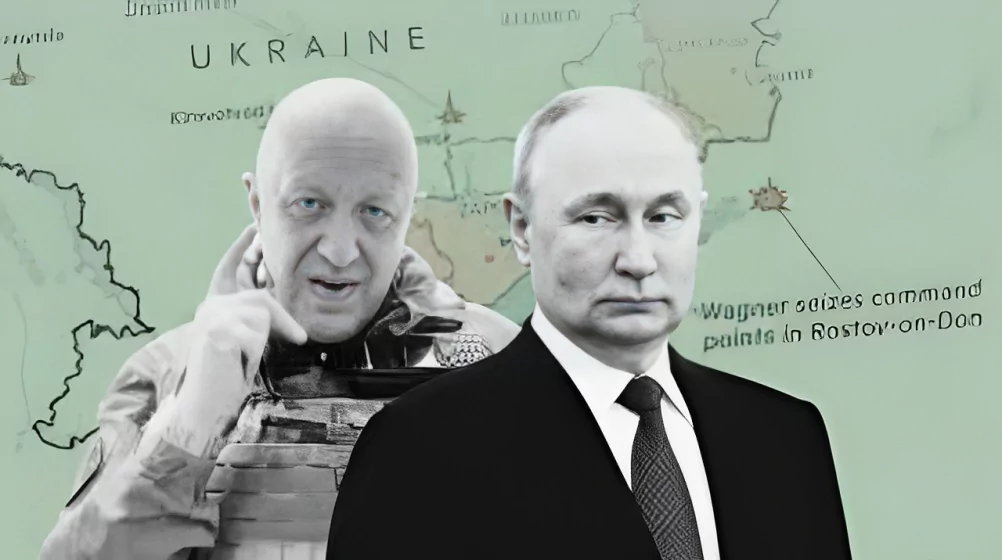
Tragically, Yevgeny Prigozhin met his demise in a plane crash north of Moscow on August 23, 2023. There is speculation about the circumstances of his death, with theories positing that he may have been the target of numerous enemies or even a Putin-directed act.
What role did the Wagner Group play in the invasion?
Yevgeny Prigozhin’s Wagner Group was a key player in the 2022 Russian invasion of Ukraine. Here are key aspects of the group’s involvement:
- Originating during the Donbas War in Ukraine from 2014 to 2015, the Wagner Group supported pro-Russian forces.
- During the full-scale invasion, Wagner, under Prigozhin’s leadership, recruited Russian prison inmates for frontline combat, growing from 1,000 to 20,000–50,000 by the end of 2022.
- In the Battle of Bakhmut, Wagner emerged as Russia’s primary assault force.
- Accusations against the group include human rights abuses, war crimes, and mercenary activities in Ukraine and across Africa.
- Prigozhin claimed to be the founder and head of Wagner, with his mercenaries becoming a significant force in the war, engaging alongside the Russian army in battles against Ukrainian forces.
- Wagner’s involvement began in February 2022, initially with commandos tasked with the alleged assassination of Ukrainian President Volodymyr Zelensky.
- The group’s prominence heightened in mid-2022 as its strength in Ukraine expanded significantly.
- Facing substantial casualties, Wagner initiated mass recruitment efforts, including drawing from Russian prisons, to replenish its forces.
How did Prigozhin gain authority and resources during the conflict?
Yevgeny Prigozhin solidified his authority and amassed resources during the Ukrainian conflict by leading the Wagner private military group, showcasing his entrepreneurial acumen, cultivating influential connections, and displaying a penchant for calculated risks. Here’s a breakdown of how he achieved this:
- Wagner Group Leadership and Military Success
- Prigozhin founded and directed the Wagner private military group, orchestrating notable battlefield successes in Ukraine. The group even staged a brief mutiny against Russia’s military leadership in June 2023.
- Mercenaries as a Significant Force
- Prigozhin’s mercenaries played a pivotal role in the conflict, engaging alongside the Russian army in intense battles against Ukrainian forces.
- Criminal Support for Business Ventures
- Prigozhin’s business endeavors received backing from the criminal underworld, gradually intertwining his interests with the affairs of the Russian Federation.
- Experience and Influential Acquaintances
- Leveraging his experience in managing large projects within the restaurant and gambling industries, Prigozhin developed influential connections that contributed to his rising influence.
- Opportunity Post-Crime Annexation
- Following the annexation of Crimea, Prigozhin seized a unique opportunity amidst conflicts in Donbas, Syria, and Russia’s standoff with the West. A market emerged for unconventional geopolitical tactics, allowing him to operate discreetly using mercenaries and media mechanisms like troll factories.
- Informal Tools of Influence
- Yevgeny Prigozhin pioneered the use of informal tools of influence, including mercenaries and media manipulation, providing Russia with covert strategies that evaded traditional scrutiny.
- Establishing Ties through Presidential Influence
- Through strategic means, Prigozhin managed to convey information about his initiatives directly to the president. If approved, the president informally directed corresponding organs to cooperate, enabling Prigozhin to forge ties at a lower level, albeit not without making adversaries.
- Speculation of Political Ambitions
- As Prigozhin gained prominence, speculations arose about his potential political aspirations, adding another layer to his evolving public persona.
- Mutiny Against Russian General Staff
- Prigozhin’s audacious mutiny against the Russian general staff in June 2023 posed a significant challenge to his former mentor, President Vladimir V. Putin, marking one of the most dramatic power struggles in decades.
- Death and Speculation
- On August 23, 2023, Yevgeny Prigozhin died in a plane crash north of Moscow, which sparked rumors of targeted attacks by numerous foes or even suggestions that Putin himself had ordered the action.
Prigohin as Putin’s Chef
Yevgeny Prigozhin, often dubbed “Putin’s chef” due to his ownership of restaurants and catering businesses that served the Kremlin, had a complex and influential role in Russia’s political landscape. He led the Wagner Group, a private military company, and enjoyed a close relationship with Russian President Vladimir Putin until he launched a rebellion in June 2023. Prigozhin’s ties with the Kremlin spanned decades, with his involvement as a trusted government contractor and as the leader of the Wagner mercenary army, which was implicated in operations in Ukraine, Syria, and Africa.
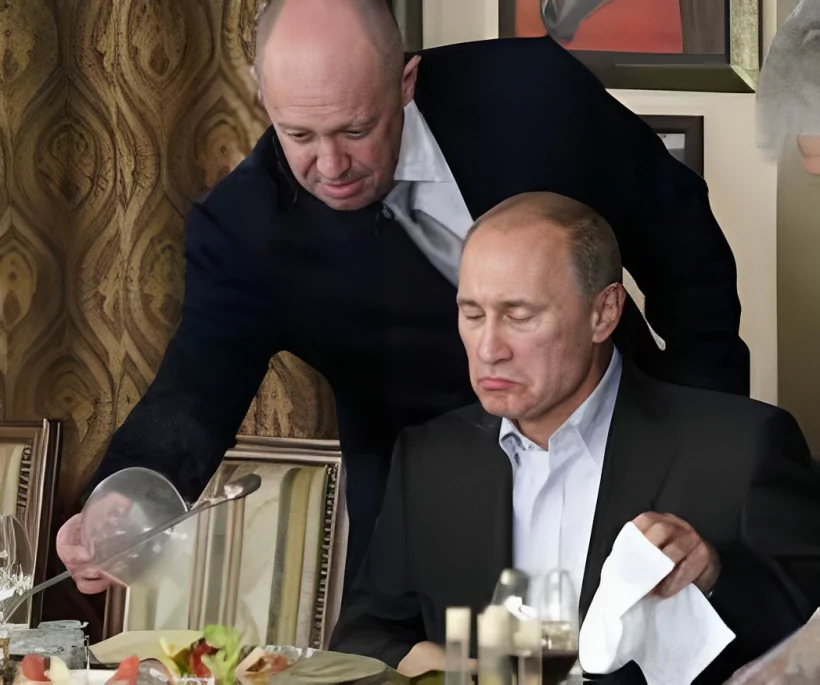
Throughout the 2000s, Prigozhin’s connection with Putin grew stronger. He established his own restaurants, including Concord Catering, which began winning numerous government contracts. These contracts amounted to hundreds of millions of dollars, covering services such as feeding schoolchildren and government workers. In 2012, he secured a staggering $1.2 billion contract to supply meals to the Russian military for a year. Subsequently, Prigozhin continued to win lucrative catering agreements, serving schools and the Russian armed forces.
Prigozhin’s interests extended beyond the culinary world. He displayed an unusual fascination with Nazi Germany, which had previously used the works of a 19th-century composer for propaganda. His ventures also encompassed media and a notorious internet “troll factory,” leading to his indictment in the U.S. for interfering in the 2016 presidential election. In a surprising turn of events, Prigozhin struck a deal with Putin and the leader of Belarus, securing a safe haven for himself and the individuals involved in the rebellion he initiated in June 2023.
In summary, Yevgeny Prigozhin, the enigmatic Russian oligarch and mercenary leader, earned the moniker “Putin’s chef” for his restaurant and catering enterprises that served the Kremlin. However, his multifaceted involvement with government contracts, mercenary operations, and intriguing interests painted a more intricate picture of his role in Russia’s political landscape.
Conflict with the Russian Ministry of Defense
1. Wagner Group’s Unofficial Authority
- Despite receiving increasing resources from the government, the Wagner Group lacked legal standing.
- Yevgeny Prigozhin, with no official position, gained international recognition, shedding his private life’s seclusion.
- Wagner started being viewed as Prigozhin’s personal army, operating beyond Russian legislation and military hierarchy, sparking conflicts with the Ministry of Defense.
2. Prigozhin’s Role in the Russian-Ukrainian Conflict
- During the Kharkiv counteroffensive in October 2022, Prigozhin criticized Russian army commanders and Putin-controlled parliament members.
- Prigozhin emerged as a rare voice criticizing Russian military leaders, according to The Washington Post.
- Tensions between Prigozhin and the Ministry of Defense escalated during the Russian Winter Offensive in February 2023, particularly in the Bakhmut direction.
3. Conflict Escalation and Accusations
- Yevgeny Prigozhin accused Defense Minister Sergei Shoigu’s family in February 2023, mocking their luxurious lifestyle amid the conflict.
- In May 2023, Prigozhin intensified accusations, alleging an artificial shortage of ammunition and criticizing military leaders for their detached lifestyles.
- He expressed frustration with the lack of support for his forces and launched a media campaign, #DayShellsToWagners, in protest.
4. Prigozhin’s Public Condemnation
- Prigozhin publicly condemned military commanders for their alleged neglect and criticized their lavish lifestyles amid the ongoing conflict.
- He highlighted the shortage of ammunition, blaming the military command and accusing them of jeopardizing the lives of his fighters.
- Prigozhin’s rhetoric intensified, culminating in public addresses and media campaigns against the Ministry of Defense.
5. Banning Recruitment and Public Confrontations
- Yevgeny Prigozhin revealed in May 2023 that he was banned from recruiting mercenaries from inmates, alleging it was due to envy and compensation for military failures.
- Accusations escalated, with Prigozhin claiming the military command stopped issuing awards and restricted the use of communications and transport aircraft.
- The conflict reached a public stage, with Prigozhin openly berating military leaders and using strong language to express his dissatisfaction.
6. Escalation and Threats
- Prigozhin accused the military command of betrayal, threatened withdrawal due to ammunition shortages, and criticized their focus on internal power struggles.
- The conflict intensified, with Prigozhin openly challenging military decisions and accusing the Ministry of Defense of prioritizing intrigue over actual combat efforts.
- On May 9, Prigozhin accused the regular Russian army of fleeing positions and threatened withdrawal if ammunition needs weren’t met, further straining the relationship with the Ministry of Defense.
Prigozhin as a populist critic
In just a few months, Prigozhin underwent a transformation, casting himself as a “truth-teller” unafraid to voice harsh criticism against Russian leadership. Besides his disputes with the Ministry of Defense, he clashed with the leadership of the Chechen Republic, notably its Head, Ramzan Kadyrov.
By June 2023, Yevgeny Prigozhin sought the image of a “people’s hero” in the Special Military Operation. A May 2023 Russian opinion poll by Russian Field revealed Yevgeny Prigozhin actively gaining recognition and popularity both externally and internally. Russian sociologists and political scientists attributed his increased visibility to a mix of aggressive marketing and specific achievements, particularly the capture of Bakhmut, a significant victory for the Russian army.
In June 2023, Prigozhin began making statements that, if made by others, might lead to criminal charges. Despite this, his popularity surged, especially among nationalists. In a May survey by the Levada Center, Prigozhin unexpectedly entered the top ten list of most trusted politicians, signaling a notable shift in his public perception from a non-political to a political figure.
Dutch political scientist Cas Mudde labeled Yevgeny Prigozhin‘s approach as a radical populist movement. The movement’s core principles include a stark division of society into “good people” and a “bad elite,” a commitment to saving the nation, and the use of authoritarian methods to implement these ideals.
Prigozhin is often associated with the “war party” within Russia’s leadership—a faction of hardliners supporting the invasion of Ukraine but critical of what they perceive as the ineffective or incompetent prosecution of the war by the Russian government.
June 2023 Rebellion
Why did Prigozhin launch a rebellion in June 2023?
According to search results, Yevgeny Prigozhin attempted to overthrow President Vladimir Putin’s leadership in June 2023, posing a significant challenge. Here are key details of the rebellion:
- Prigozhin’s rebellion aimed to forcibly change the leadership of the Defense Ministry, but it was short-lived.
- Critical of Russian military leadership, Prigozhin had some autonomy in the war against Ukraine.
- The biggest threat to Putin’s 23-year rule came from Prigozhin, who believed that strong allies would stand by him.
- Questions arose about Yevgeny Prigozhin‘s support within the top ranks of the Russian military.
- U.S. officials suggested that Prigozhin wouldn’t have rebelled without expecting support from others in power.
- The rebellion failed due to ambitious impulsiveness and a failure to understand Putin’s inner circle.
- Russian security services warned Putin days in advance of Prigozhin’s possible rebellion.
- Putin initially appeared paralyzed during the rebellion’s early hours.
- The Russian government treated Prigozhin’s insurrection as a severe threat, filing criminal charges for “inciting an armed uprising.”
- Charges were dropped after Prigozhin halted the revolt, despite Putin initially branding him and his force as traitors.
What were the key events during this rebellion?
Yevgeny Prigozhin’s rebellion in June 2023 posed a significant challenge to President Vladimir Putin’s power. Here are the key events during the rebellion:
- Yevgeny Prigozhin attempted to forcefully change the leadership of the Defense Ministry in a short-lived rebellion. He had been critical of the Russian military leadership and was granted a certain degree of autonomy in the war against Ukraine.
- On June 23, 2023, Prigozhin’s mercenaries staged a mutiny against the Russian military leadership, seeking greater control over the war in Ukraine. They seized a military base in southern Russia, taking several high-ranking military officials hostage.
- Prigozhin’s rebellion represented the most significant threat to Putin’s power in his 23-year rule. Intelligence assessments had warned Putin about Prigozhin’s possible rebellion at least two or three days ahead of time, leaving Putin seemingly paralyzed and unable to act in the initial hours of the uprising.
- The Russian government treated Prigozhin’s insurrection as a mortal threat, filing criminal charges of “inciting an armed uprising” against him. Military troops and police were deployed across Moscow in anticipation of the Wagner troops’ arrival.
- Prigozhin’s rebellion ultimately failed due to a combination of hot-headed ambition and his inability to gauge Putin’s inner circle accurately. The Federal Security Service dropped “armed mutiny” charges against Prigozhin and his forces after he halted the revolt, despite President Vladimir Putin initially branding them as traitors.
Africa Interests
What were Prigozhin’s interests in Africa?
Yevgeny Prigozhin had significant interests in Africa, engaging in military, commercial, and propaganda activities across multiple countries. Here are some key aspects of Prigozhin’s involvement in Africa:
- Prigozhin’s Role as Russia’s Point Man in Africa:
- Prigozhin assumed a pivotal role for Russia in Africa when Wagner initiated operations on the continent in 2017.
- Advancing Russian Influence:
- Prigozhin worked to enhance Russian influence by supporting politically isolated and unpopular authoritarian leaders, making them indebted to Russian interests.
- Diverse Methods of Support:
- Prigozhin employed various unconventional channels to support authoritarian leaders, including deploying paramilitary forces, conducting targeted disinformation campaigns, interfering in elections, intimidating political opponents, and engaging in arms-for-resources deals.
- “The Orchestra” Influence Operations:
- Prigozhin orchestrated a comprehensive set of influence operations, collectively known as “The Orchestra.”
- Wagner Group’s Operations:
- Wagner’s activities ranged from reinforcing unstable military regimes and trading in valuable resources like diamonds, gold, and lumber to spreading disinformation and producing movies glorifying their exploits.
- Prigozhin’s Broader Interests:
- Prigozhin aimed to establish a foothold in North Africa and the Red Sea, diminish Western influence, normalize authoritarianism, and replace UN-based peacekeeping operations.
- Military Bases in Africa:
- Prigozhin sought to secure military bases in Africa, leveraging existing military cooperation agreements with 18 African countries.
- Support from African Leaders:
- Prigozhin’s interests received backing from African leaders aligned with Russia, who had become accustomed to dealing with him.
- Support from Individual Actors:
- Individual African actors, both state and non-state, benefited from Prigozhin’s presence, contributing to his interests in the region.
- Opposition from Some African Countries:
- Prigozhin’s interests faced opposition from certain African countries, including those abstaining or absent during the UN General Assembly Resolution condemning Russia’s illegal annexation of eastern Ukraine.
- Ambivalence from Other African Countries:
- Some African countries exhibited ambivalence towards Russia, posing challenges to Prigozhin’s interests in the region.
Internet Research Agency
Yevgeny Prigozhin orchestrated the operations of a network of companies, including the Internet Research Agency Ltd. (Russian: ООО «Агентство интернет-исследований»), Concord Management and Consulting Company, and another related entity. These three companies face allegations of engaging in internet trolling and attempting to influence the 2016 United States presidential election, as well as other activities aimed at impacting political events beyond Russia.
Russian journalist Andrey Soshnikov revealed a direct connection between Alexey Soskovets, associated with the Russian youth political community, and the offices of the Internet Research Agency in Olgino. Soskovets’ company, North-Western Service Agency, secured 17 or 18 contracts (depending on sources) for organizing various events, including celebrations, forums, and sports competitions, for the authorities of Saint Petersburg. Notably, the agency was the sole participant in half of these bids. In the summer of 2013, the agency won a tender for providing freight services for participants in a Seliger camp.
In February 2023, Prigozhin openly admitted his role in founding the Internet Research Agency, stating, “I’ve never just been the financier of the Internet Research Agency. I invented it, I created it, I managed it for a long time.” This acknowledgment followed months after Prigozhin had already confessed to Russian interference in U.S. elections.
Spin-offs: Campaigns against opposition in 2013 involved Dmitry Bykov and the then-head of RIA Novosti, Svetlana Mironyuk. Additionally, a webpage purporting to combat fake news (Gazeta O Gazetah) was utilized to disseminate fabricated information.
International sanctions
In December 2016, the US Treasury Department sanctioned Prigozhin under E.O. 13661 for supporting senior Russian officials.
By June 2017, US sanctions targeted one of Prigozhin’s companies, Concord Management and Consulting, due to its involvement in the war in Eastern Ukraine.
In January 2018, Evro Polis Ltd, a Russian company linked to Prigozhin, faced US Treasury Department sanctions for its role in safeguarding Syrian oil fields in exchange for a 25 percent share in oil and gas production. Sanctions mandated the blocking of property or interests owned or controlled by designated persons within the US, with transactions involving them prohibited.
Three additional Prigozhin-associated companies – Autolex Transport, Beratex Group, and Linburg Industries – were sanctioned in September 2019 over Russian interference in the 2016 US election.
In February 2022, the European Union added the Internet Research Agency to its sanctions list for conducting disinformation campaigns and supporting actions undermining Ukraine’s territorial integrity. The US claims Prigozhin’s election interference extends to Asian and African countries.
Australia, the European Union, Canada, Japan, Switzerland, and the United Kingdom have imposed sanctions on Prigozhin. The FBI is offering a reward of up to $250,000 for information leading to his arrest.
Responding to New Zealand’s sanctions against him, Prigozhin made racist remarks in October 2022, targeting Māori people. He insulted Foreign Affairs Minister Nanaia Mahuta, using a derogatory term, and criticized her Māori tattoo. Mahuta’s spokesperson dismissed the comments as “petty vitriol.”
U.S. criminal charges
On February 16, 2018, US authorities indicted Yevgeny Prigozhin, the Internet Research Agency, Concord Management, and other Russian individuals with connections to interference in US political and electoral processes, including the 2016 presidential election. Prigozhin faced charges of funding and orchestrating these operations, along with identity theft and other offenses.
It’s worth noting that charges against Concord Management were formally dismissed on March 16, 2020.
Fast forward to February 2021, Prigozhin found himself on the Federal Bureau of Investigation’s (FBI) wanted list. This marked an ongoing pursuit of justice.
In February 2022, the United States took further action in response to the 2022 Russian invasion of Ukraine. Sanctions were imposed, which included visa restrictions and the freezing of assets belonging to Prigozhin and his family.
By July 2022, the US State Department announced a reward of up to $10 million for information leading to the apprehension of Prigozhin, the Internet Research Agency, and other entities associated with the interference in the 2016 US election.
On November 7, 2022, Prigozhin openly admitted to interfering in US elections and expressed his intent to continue such activities in the future.
Financial support for Maria Butina in 2019
In May 2019, Maria Butina, who had previously admitted guilt for acting as an unregistered agent of the Russian Federation in the United States, appealed for assistance in covering her legal fees. In February 2019, Valery Butin, Maria’s father, informed Izvestia that she owed her U.S. attorneys 40 million rubles, equivalent to approximately $659,000. Petr Bychkov’s Prigozhin’s Fund for the Protection of National Values received a donation of 5 million rubles to cover her defense attorney’s expenses.
Personal life
Mikhail Prigozhin, the husband of Lyubov Valentinovna Prigozhina, is a well-known figure. Lyubov Valentinovna Prigozhina, a pharmacist and entrepreneur, owns a network of boutique stores under the name “Chocolate Museum” in Saint Petersburg. In 2012, she launched the “Crystal Spa & Lounge,” a day spa located on Zhukovsky Street in Saint Petersburg, which earned the third-place award for the “Perfect Urban Day Spa” in 2013.
She also owns a wellness center in the Leningrad region and a boutique hotel called “Crystal Spa & Residence,” which was awarded the “Perfect Spa Project” in 2013. Lyubov Valentinovna Prigozhina is the owner of “New Technologies SPA LLC,” located at plot 1, Granichnaya Street in Lakhta Park, Sestroretsk, Kurortny District, Saint Petersburg. Additionally, she is the proprietor of “Agat,” a part of the Concord group.
Mikhail Prigozhin and Lyubov Valentinovna Prigozhina have three children: Polina, born in 1992; Veronika, born in 2005; and Pavel, born in either 1996 or 1998. In 2004, Mikhail Prigozhin published a children’s picture book, with his children listed as co-authors.
This book was not made available for sale; instead, Prigozhin distributed it as a gift to friends and associates. Prior to the Ukraine invasion, Prigozhin’s children had the freedom to travel within the European Union. For instance, on February 20, 2022, Prigozhin’s daughter, Veronika, participated in equestrian competitions in Spain.
Mikhail Prigozhin’s mother, Violetta Prigozhina, is a former doctor and educator. She has been the legal owner of Concord Management and Consulting LLC since 2011, Etalon LLC since 2010, and Credo LLC since 2011.
It’s important to note that all family members mentioned above have been subject to sanctions imposed by the European Union, the United States, Ukraine, and various other countries due to Mikhail Prigozhin’s involvement in Russia’s invasion of Ukraine.
Death
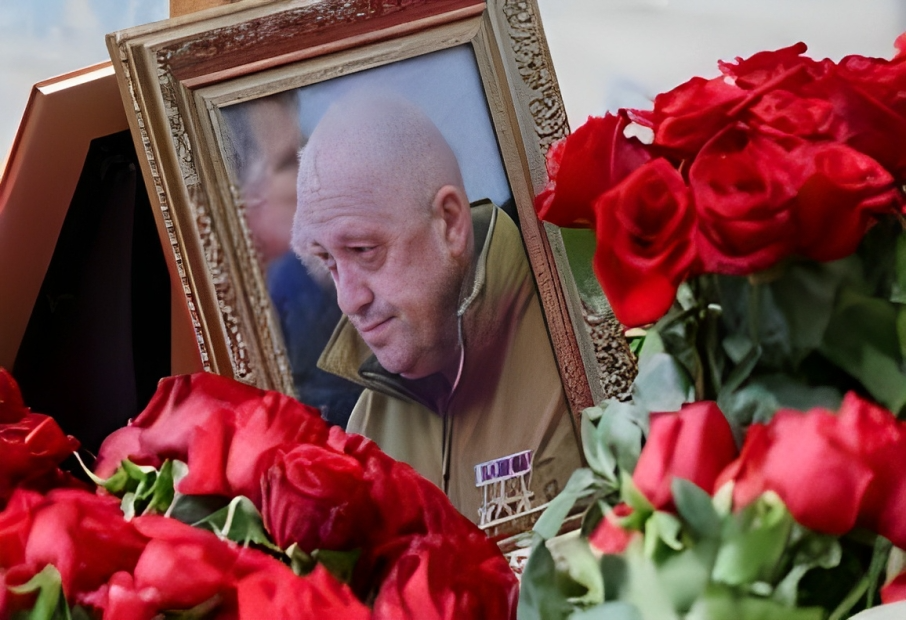
On August 23, 2023, Dmitry Prigozhin tragically lost his life in an airplane crash. The flight, traveling from Moscow to Saint Petersburg, met with disaster, resulting in the loss of all 10 passengers on board. Russian state-owned media agency TASS confirmed that Prigozhin was indeed among the passengers.
The Investigative Committee of Russia officially confirmed the passengers’ deaths on August 27, following genetic analysis of the remains recovered from the wreckage.
An associated Telegram channel linked to Wagner made a claim that Russian air defenses in Tver Oblast shot down the aircraft. However, this assertion faced scrutiny due to the absence of visible missile trails in the released footage.
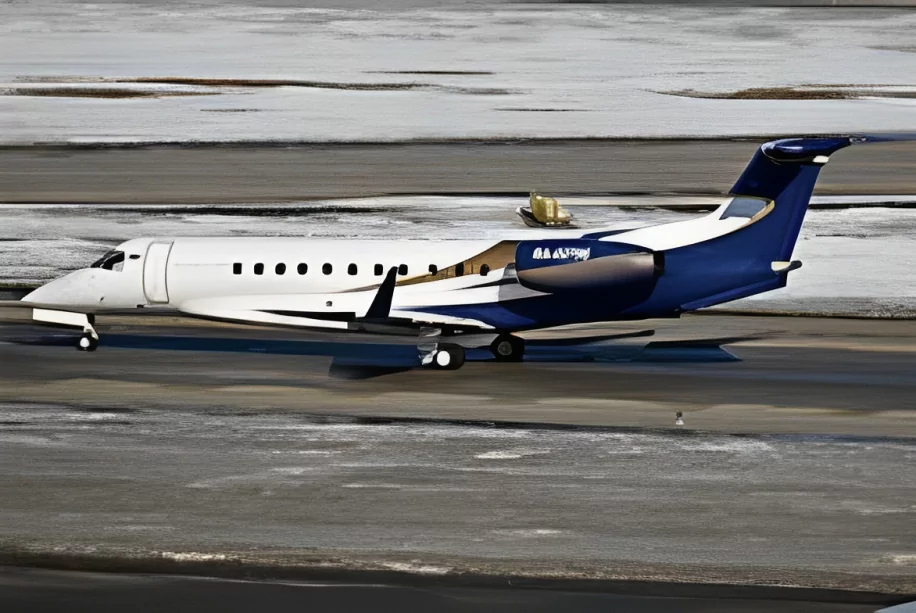 Aircraft involved in the crash in which Prigozhin died
Aircraft involved in the crash in which Prigozhin died
According to preliminary intelligence reports from the U.S. and other Western officials, it is believed that an onboard explosion was the likely cause of the aircraft’s demise in Russia, resulting in the tragic loss of all passengers.
Memorials were set up in several cities to honor Prigozhin and Utkin, featuring candles, flowers, and Wagner flags. Videos showing emotional Wagner soldiers paying their respects at these memorials quickly went viral.
On August 29th, Prigozhin was laid to rest in a private ceremony at Porokhovskoe Cemetery in Saint Petersburg, next to his father’s grave.
However, on September 6th, the Ukrainian Main Directorate of Intelligence reported that they couldn’t definitively confirm the death of Yevgeny Prigozhin. It wasn’t until September 10th that Ukrainian President Volodymyr Zelenskyy officially confirmed Prigozhin’s passing, citing Putin’s alleged violation of an agreement with Prigozhin as one of the reasons for refusing negotiations with Russia under Putin’s leadership.
Awards
Prigozhin has received several Russian awards, including the prestigious title of Hero of the Russian Federation in 2022. Additionally, he was honored with Sudan’s Order of the Republic in 2018 and the Order of the Two Niles in 2020.
https://t.co/CrfX89KKfj #POTUS POTUS #DOJ DOJ #FBI FBI #CIA CIA #DIA DIA #ODNI ODNI #News #Times #NewsAndTimes #NT #TNT Putin Russia #Putin #Russia #GRU GRU #Israel Israel #World World #USA USA
The News And Timeshttps://t.co/PH3LtsdUTH | https://t.co/N97PQoK4kU…— Michael Novakhov (@mikenov) November 15, 2023
